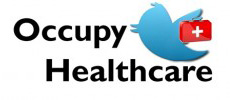DocForeman: I’m here with Dr. Bill Schmitz, Licensed Psychologist, Suicidologist, and past board member of the American Association of Suicidology. Dr. Schmitz is a recognized national expert on suicide and primary and mental health care integration.
Dr. Schmitz, if you were going to give the US Healthcare system a report card on the way it responds to suicide, what grade would you give it, and why?
Dr. Schmitz: D – Primary care is the most common place where people who eventually kill themselves seek help. In fact, most people who die by suicide have seen their primary doctor within a month prior to their death. I fully realize that there are so many demands on PCPs (too many, really) that it’s impossible for them to look for everything. However the potential outcome of suicidal thoughts [i.e. DEATH] means that overlooking it is NOT GOOD. While most people feel uncomfortable talking about suicide and death, PCPs and MDs have no excuse. These are the people who talk about rectal bleeding, penile discharge, and other kinds of seepage, fer cryin’ out loud. There is NO WAY that talking about suicide should be more awkward than that.
Doc Foreman: But what about mental health providers? What grade would you give *us*?
Dr. Schmitz: F – Considering that we (Psychologists and other mental healthcare providers) are the “experts,” a lot of providers in our field are terrified of asking people if they are suicidal. C’MON FOLKS! Suicide is the #1 behavioral emergency and the MOST SEVERE OUTCOME of mental illness. It is also the #10 cause of death in this country. The research shows that about 90% of mental health providers would FAIL a BASIC exam of competency when it comes to responding to suicide. Hmmm…it would be good for the “professionals” to be basically competent about this issue, or just even be able to ASK about suicide, dontcha think?!?
DocForeman: What kind of impact does suicide have on American health? How big of an issue is it?
Dr. Schmitz: Of course, I could cite all the fancy numbers (billions in lost income, hundreds of thousands of people impacted by suicide, blah, blah, blah), but basically, it comes down to this: We KNOW that most suicidal people are going see their health care providers (most often primary care). And we also know that a lot of times suicidal people don’t get the assessment and treatment they need to stay alive. People are dying from a VERY PREVENTABLE condition, and their families are being torn up by suicide. So, you can view the impact on a large, national level, or from a very human, individual perspective.
In fact, don’t even get me started on follow-up care for their families. The bereavement services to survivor families are paltry at best. Rather sad considering that death of a family member by suicide exponentially increases one’s own risk for suicide. That’s a whole different blog post.
Doc Foreman: Wow. This just seems like an area where it’s clear that many primary care doctors and mental health providers are under-providing. In healthcare, right now, we are talking a lot about addressing long-term health problems like diabetes, or heart disease. But, when you think about it, controlling a person’s diabetes is an irrelevant issue if someone has already died by suicide after years of untreated depression.
Dr. Schmitz, If you could change only one thing about the healthcare system that would stop suicide from being a leading cause of death in our country, what would it be?
Dr. Schmitz: We need providers, in all settings, to ASK about suicide. If providers can get past THEIR fear, it will allow our patients to talk about why they are seeking help to stay ALIVE. When providers make it okay to talk about suicide, patients are more than happy to share their inner thoughts about possibly killing themselves. It’s actually a RELIEF to patients to be able to talk about it…go figure, right?**
DocForeman: What’s stopped us from making this change already? Why is it that so few doctors and mental health providers are even asking about suicide in the first place?
Dr. Schmitz: I bet most people don’t realize that mental health providers are NOT REQUIRED to learn about suicide (assessment or treatment). This is really pathetic. It is a sad reality that teachers in many states are required to have 2 hours of education about suicide risk detection and how to get students to “proper care,” but the “proper care” (mental health professionals) have NO requirement to stay up-to-date on how to assess for suicide or manage suicidality. A system where teachers and school personnel are required to have ongoing certification about suicide prevention, while at the same time having NO similar requirements for mental health providers [let me say that again, NOT mental health providers] is ABSURD. I believe this is one reason why 90% of mental health providers can’t pass a basic suicide prevention/treatment competency exam. And this may be one reason why suicide continues to be a leading cause of death in our country. The sad thing (or maybe it’s a good thing) is that making suicide training a requirement for health care providers is something that can be easily adopted. It would save lives.
**I am an ardent supporter of preventative medicine, consistent with DocForeman’s comment related to diabetes. At the same time, our healthcare system clearly should direct significantly more attention to preventing an acute, potentially immediate, cause of death – SUICIDE [yes, it really is okay to say the word suicide; you’re not planting any ideas, trust me].
Dr. William M. Schmitz, Jr. is Licensed Clinical Psychologist in Louisiana, and currently works for Department of Veterans Affairs. Dr. Schmitz is a developer and certified instructor for “Recognizing and Responding to Suicide Risk in Primary Care” training offered through the American Association of Suicidology. Dr. Schmitz received his Psy.D. in Clinical Psychology from Baylor University.
